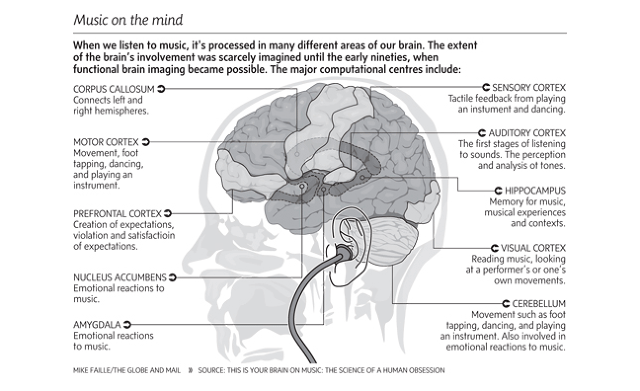Meghan Trainor’s song “Dear Future Husband” and OMI’s song “Cheerleader” have striking similarities. Musically they are both fun and upbeat songs. Both songs engage with the idea of marriage and outline what they expect and value in their potential spouse. However, the two songs offer conflicting ideas of what a good husband and wife look like. It is almost comical that “Cheerleader,” from a man’s perspective, describes the potential wife as a mere cheerleader and “Dear Future Husband,” from the woman’s perspective even if only satirically,{1} describes the potential husband as a mere servant. That brings me to the final comparison: both songs expect the spouse to be an aid in providing whatever the artist desires.
However, there are some truths hidden in these songs about the role of husband and wife in marriage that can best be understood and even celebrated through a biblical understanding of marriage.
Marriage as a Deal
the list by remarking “Here’s a few things you’ll need to know if you wanna be my one and only all my life.” Trainor spells out examples of what she expects from her husband including taking her on dates, telling her she is beautiful, not correcting her, apologizing, buying her a ring, opening doors for her, and even letting her sleep on the left side of the bed. Then of course she adds the the catch—all requests such as “be a classy guy,” “treat me like a lady,” and “love me right.”
The song also outlines what he will get in return as a reward if he does everything right. She will only “be the perfect wife,” buy groceries, give “some kisses,” be his “one and only all [her] life,” give “that special loving” if he does exactly what she asks of him. Additionally, he will have to expect that she will be crazy (at least some of the time), she will correct but not be corrected, she will not cook, and they will favor her extended family over his. What a deal! And unfortunately that is exactly what marriage is conflated into—a deal, an exchange.
Most of these actions are pretty standard ways men show love to their wives. However, men should not and likely do not perform the acts because of a contractual agreement or because of expectations. How can this man show true unconditional and sacrificial love to his wife if he does these actions out of duty or hope of reward?
This marred picture of marriage is so faulty because it offers a picture of marriage that is a one-sided willingness to be served by her husband and then only serve him as a response. Even though the song lists loving actions in marriage, this picture of marriage is ultimately selfish, conditional, manipulative, and loveless.
Marriage as a Cheerleader
Looking to “Cheerleader,” the song offers a more hopeful and less distorted picture of marriage—however, we are still left wanting. The future wife in OMI’s song is a woman characterized by her support, affection, strength, physical beauty, readiness to serve, and faithfulness. All these attributes are biblically commendable and should even be sought after.Yet, what does OMI, as the future husband, offer to her? Fidelity and sex. In contrast to
Trainor’s song, here the husband remains rightly faithful and offers sex because he values his wife so much, especially her ability to support him.{2}
However, again the picture seems woefully incomplete. The song portrays a limited picture of women by reducing his future wife to only a handful of attributes that benefit him. His wife should be more than a mere cheerleader. She is simply a tool he can pull out whenever he wants or needs her. The song further reduces—and in some ways even dehumanizes—her by focusing on the services she can offer him. As a result, she is not represented as her own person with her own needs and desires.
Marriage as a Picture of Unity
 Ultimately marriage is a picture of Christ and the Church—a picture both songs catch a small glimpse of. When Trainor in “Dear Future Husband” desires (albeit via demand) for her husband to show her love by serving her and affirming her, she desires something that is biblical. Husbands are called to nourish, cherish, honor, embrace, protect, and love their wives.{3} Having biblical standards in what to expect in a husband is what God wants, but not through demands and deals.
Ultimately marriage is a picture of Christ and the Church—a picture both songs catch a small glimpse of. When Trainor in “Dear Future Husband” desires (albeit via demand) for her husband to show her love by serving her and affirming her, she desires something that is biblical. Husbands are called to nourish, cherish, honor, embrace, protect, and love their wives.{3} Having biblical standards in what to expect in a husband is what God wants, but not through demands and deals.
OMI also desires legitimate attributes in his wife. He values a wife who will support and affirm him. In Genesis God created woman with Adam’s need for companionship and assistance in mind.{4} Proverbs 31 describes an excellent wife as a woman who is strong, trustworthy and praiseworthy.{5} However, Proverbs 31 does not just define an excellent wife in those terms; the excellent wife is generous, wise, skilled, dignified, and uses her time buying, selling, trading, and providing for her entire household. So when OMI seeks an excellent wife, he gets a cheerleader—but if he were to look for a biblically defined wife of excellence then the proverb would ring true, that “he who finds a wife finds a good thing and obtains favor from the Lord.”{6}
But neither artist has the full picture. Marriage is not an exchange of services—yes, spouses should serve each other; not out of duty but out of a thankful and loving heart. The element that is missing from both songs is the true and complete needs and desires of the opposite spouse. However, both songs together offer a fuller picture of what each spouse needs and desires. Ephesians 5 commands husbands to love their wives, something Trainor focused on, and for wives to respect their husbands, as OMI touched on through valuing affirmation from his wife.{7}
Genesis describes marriage as becoming one flesh, and following that theme Paul in Ephesians calls husbands to “love his wife as himself.”{8} By being one flesh, spouses should see their separate wills as one unified will and their separate body as one body. Paul writes that concerning this idea of unity, “For the wife does not have authority over her own body, but the husband does. Likewise the husband does not have authority over his own body, but the wife does.”{9} This picture of marriage is strikingly different from the deal-making, manipulating, and self-serving marriage according to Trainor and OMI.
The true beauty and blessing in marriage for the Christian, is ultimately that marriage is a picture of the relationship between Christ and the Church. Again in Ephesians, Paul refers to marriage by writing, “This mystery is profound, and I am saying that it refers to Christ and the church.”{10} When a man and a woman marry, they symbolize unity that is fully complete between Christ and His people.{11}
However, because of our sin we were incapable of being united with Christ. In order for Christ to marry his Church he had to make us clean and even righteous. Christ accomplished this by taking our place and dying on the cross for our sins so we might receive the righteousness of Christ. In that way, when God the Father looks down at His Church He sees a people who are flawless and thus fitting to be united with His son. Christ is the perfect husband, and when we are complete in our glorification, we will be the perfect wife as the Church.
Marriage as a Broken Picture
 Yet our marriage is only a picture—a flawed and imperfect picture. Husbands abuse wives, wives undermine their husbands, and spouses cheat on each other which can all lead to separation and divorce. God did not intend marriage to be plagued by sin, and divorce and pain was not in his design.{12} However, we did sin and as a result sin has damaged our relationships, including marriage, in a deeply painful way.
Yet our marriage is only a picture—a flawed and imperfect picture. Husbands abuse wives, wives undermine their husbands, and spouses cheat on each other which can all lead to separation and divorce. God did not intend marriage to be plagued by sin, and divorce and pain was not in his design.{12} However, we did sin and as a result sin has damaged our relationships, including marriage, in a deeply painful way.
Nevertheless, God still works to better our marriages. He sent the Holy Spirit to help believers in the process of sanctification—which is making us more like Christ. Both songs lack a place for sanctification. Trainor does not want to be confronted and OMI only wants to be affirmed.
But marriage is made for more than just affirming the good and ignoring the bad. Because men and women are different yet compatible, God uses marriage to aid in the process of making us more Christlike. Women tend to be more relational and emotional and men tend to be more protective and provisional. In marriage, the wife can learn from and value her husband’s strengths and the husband can learn from and value his wife’s strengths, as co-heirs with Christ. And when one spouse has wronged the other they can and should go to each other for confession, repentance and reconciliation that will result in more unity and ultimately aid in their sanctification.
With the power of the Holy Spirit working in us, even in our sinful state, we can still strive to symbolize our unity in Christ in our marriages. Married Christians should continually search the Bible for insight and direction on how to better serve and love their spouse. However, both married and single Christians all wait expectantly for the glorious wedding feast celebrating our unity to Christ.
Notes
1. There has been some debate about whether or not Trainor’s song is supposed to be understood as a satire. I am more inclined to think it may be hyperbolic but I think it might be too generous to call it a satire. However, most conclude that if it is meant to be satirical it does not skillfully convey that message. For more of this conversation simply google “Dear Future Husband sexist satire” and you should have plenty of articles to start on.
2. Fidelity and sex should both be a fundamental part of a biblical marriage. See Hebrews 13:4.
3. Ephesians 5:28-29, 1 Peter 3:7, and Proverbs 4:7-9. All Bible verses are in the English Standard Version.
4. Genesis 2:18.
5. Genesis 2:18, Proverbs 31:10-11, 17, 28.
6. Proverbs 18:22.
7. Ephesians 5:33.
8. Genesis 2:24 and Ephesians 5:33
9. 1 Corinthians 7:4.
10. Ephesians 5:32.
11. Because marriage is a picture of the reality of our unity in Christ that is not yet fully realized, we value and guard the sanctity of it. That is why as Christians we should be mournful at the distortions of marriage such as divorce or homosexuality. Distortions in marriage are so offensive because they distort the truth that marriage is supposed to reflect. Because marriage should be highly regarded and protected the Bible uses harsh language when speaking about sexual immorality and divorce (For example, see Malachi 2:16 for severity of husbands not loving their wives).
12. See Matthew 19:6 and 1 Corinthians 7:10-11.
©2015 Probe Ministries
